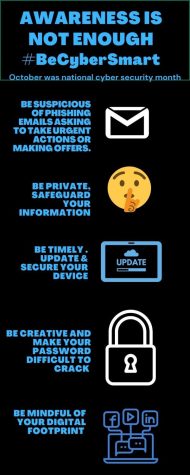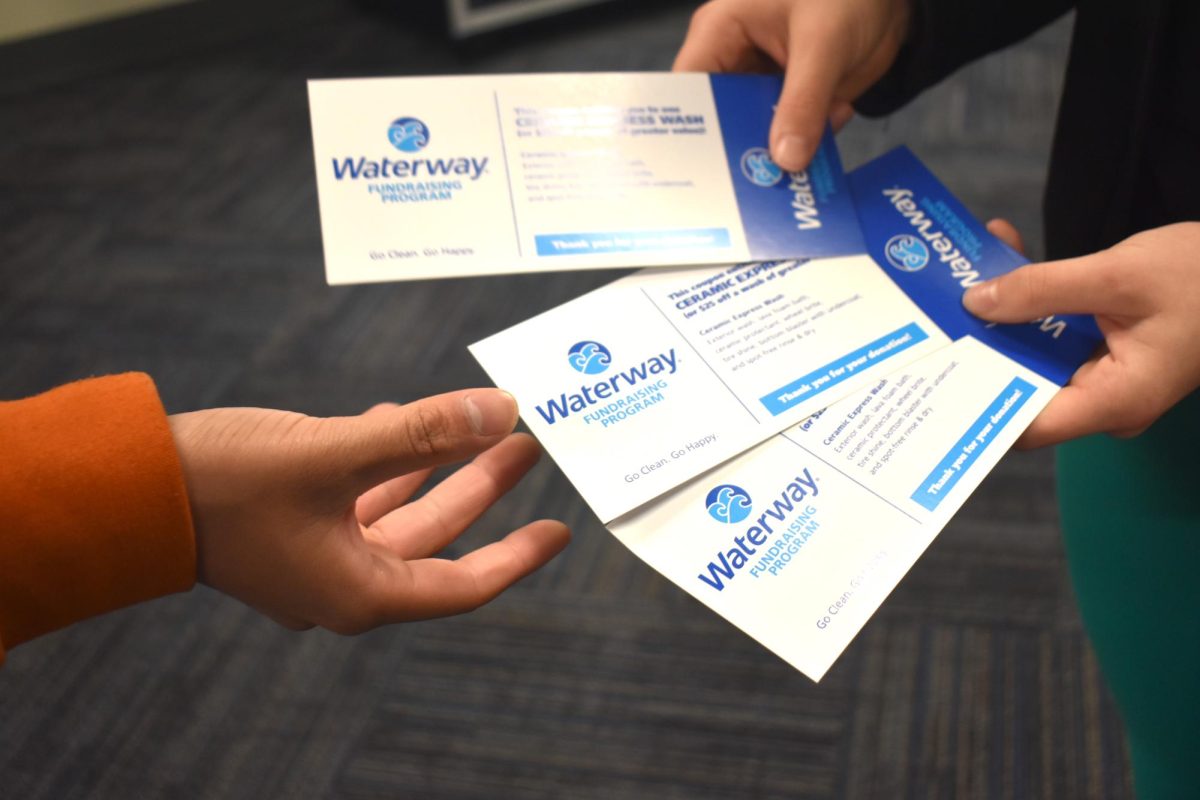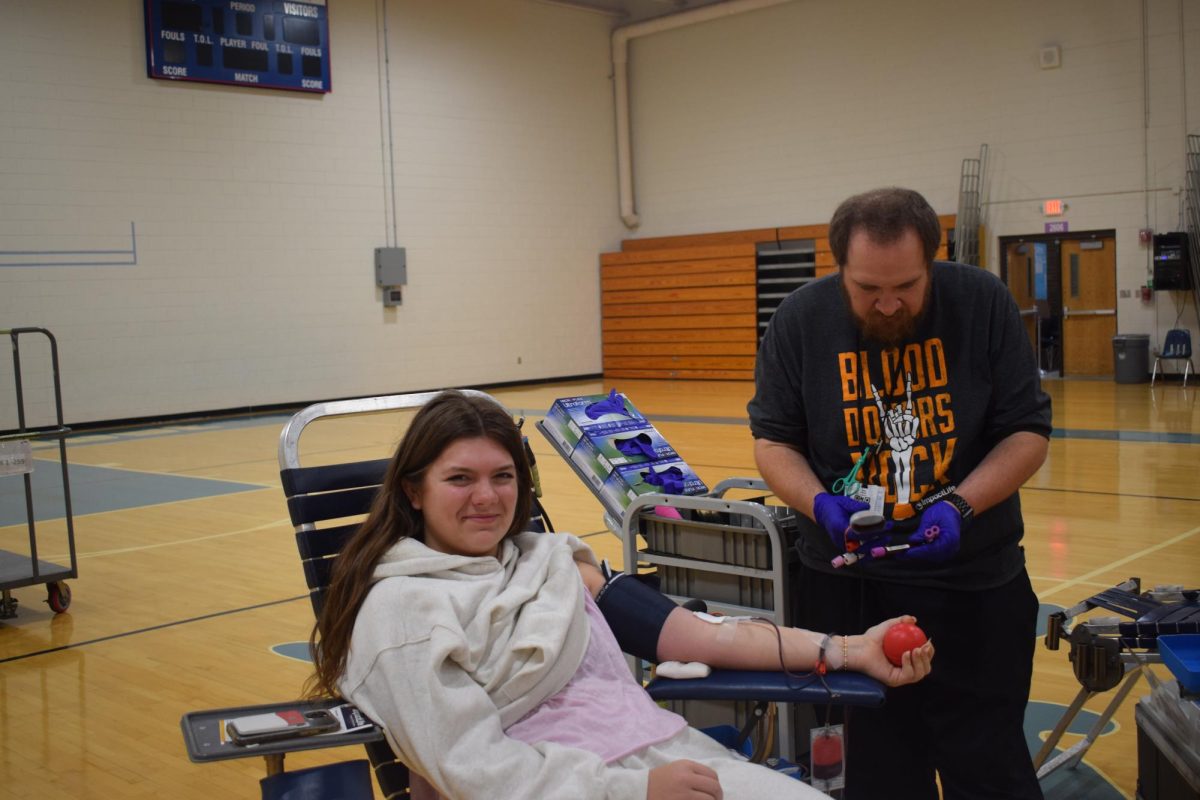
Cyberattacks are no longer an activity of high-profile companies and national security but have become a daily reality for schools. According to an FBI’s Alert, 57% of all reported ransomware attacks in August and September 2020 were targeted at the U.S. K–12 schools, and this is an increase from 28% for the period from January through July 2020. The average ransom was around $50,000, but the highest has crossed $1.4 million.
Cyberattacks have hit schools and colleges harder than any other industry during the pandemic. Two school districts in Missouri had to close due to ransomware attacks this summer.
October was Cybersecurity Awareness Month and this year’s theme is ‘Do Your Part. #BeCyberSmart.’ We can start with the question: what are we doing to keep our school safe from these cyberattacks?
Parkway’s Chief Information Officer Jason Rooks is on the alert every minute to stop and mitigate cyberattacks as well as to provide teachers and students with safe, stable technology services.
”In such cases, someone from the outside used either a system vulnerability or a user account to access the district Information Technology (I.T.) infrastructure. Once they have access to the network they are able to extract data, deploy malware and encrypt systems,“ Rooks said. “I think the important thing we can learn from these attacks is that anyone is vulnerable.”
School districts are at a high risk for cyberattacks due to a high volume of users that may lack security awareness, heightened use of technology and remote access during the pandemic and lack of resources to stop and mitigate attacks.
“Protecting students and their data is meaningful work. School districts are especially vulnerable to attack due to a lack of resources. It creates a very unique challenge,” Rooks said.
The end-user is the most common entry point for ransomware cyberattacks according to Rooks. End-users include all students, teachers, administrators, parents and everyone that is using the schools’ computer systems and network.
“Typically it will be someone who clicks on a phishing email and enters in their credentials. This gives the attacker an entry point into the network and an opportunity to compromise other systems, “ Rooks said.
A typical phishing email tries to create a sense of urgency and asks to do something. Rooks says an example of a common phishing attack is when the attacker sends an email pretending to be a principal using a made-up email address such as [email protected]. The attacker might say something in the email like ‘Are you there? I really need you to email me.’ When the victim replies, they will ask the person to go to the store and buy gift cards. Then they will ask the victim to scratch off the back of the gift cards and email them the numbers to redeem the cards.
“The goal is to create a sense of urgency so that the victim doesn’t have time to think, “ Rooks said. “The whole time the victim thinks they are doing something to help the principal. This is a common attack and one we have seen be successful at Parkway. The easiest way to combat this attack is just to verify the source email address or pick up a phone and call the principal.”
Rooks encourages everyone to be skeptical of suspicious emails or websites and not to click on random website links.
“Take the time to learn the basics of cyber security and programming. You don’t have to be a programmer, but learning the basics will help you understand how the bad guys do what they do,” Rooks said.
Although we hear about the attacks that have caused damage, there are many that are successfully blocked on a daily basis. There are a number of different tools that schools use that block activity identified as malicious, such as anti-malware applications, as well as regular scanning and reporting.
“We once had an entity attempt to access our data warehouse, they were most likely based in eastern Europe or Russia. They gained access to a publicly facing server through a protocol that was left on by mistake. The entity then tried to launch an application to help them gain access to other directories and services,” Rooks said. “Fortunately, the language the application was written in was not supported on the server. Also, our advanced malware protection identified the malicious activity and blocked the application and the user. In the end, our protections worked the way they were supposed to.”
One key to keeping yourself and the school cyber safe is to educate yourself on the basics of cybersecurity and understand how to protect yourself, according to Rooks. Senior and president of the Cybersecurity club Luc LaRocca, says the club aims to promote cyber security awareness by giving students the opportunity to compete in CyberPatriot, a competition run by the Air Force Association in which students evaluate virtual scenarios for security vulnerabilities and try to fix them.
“I joined the Cybersecurity club because I was curious about how cyber-secure I was with my personal devices. I figured if I knew a thing or two about cyber security, then I could do this. I discovered that a lot of my accounts were at risk and that everyone can become more cyber secure,” LaRocca said.
LaRocca’s three big cybertips for students are to create secure passwords for every device including your phone, use two-factor authentication on accounts that offer it and never click on a link sent by an unknown source, including a bit.ly or TinyURL.
“A simple way to do this is to think of a statement that holds meaning to you, abbreviate that, and incorporate different characters, capitalizations and numbers into it,” LaRocca said. “ If that makes it too hard to remember, try using topics from an interest of yours. For example, if you like the TV show Friends, you could use jO3y_3b4n! for one account, and bpHe0b3! for another one. This helps you to remember your passwords but still be cyber secure.”
While cybercrime grows exponentially, we are facing a severe cybersecurity talent drought, according to Forbes. A Bureau of Labor Statistics report states that the rate of growth for jobs in information security is projected at 37% from 2012 to 2022. For students that may be interested in exploring or pursuing a career in cybersecurity, Parkway has offered a semester-long cyber security course since 2018 for all interested high school students through the virtual campus.
“A student interested in cybersecurity will have opportunities in both the public and private sectors,” Rooks said. “There are a ton of great opportunities in all areas of cybersecurity.”




![The Glory of Missouri award recipients stand with their certificates after finding out which virtue they were chosen to represent. When discovering their virtues, some recipients were met with contented confirmation, while others, complete surprise. “I was not at all surprised to get Truth. I discussed that with some of the other people who were getting the awards as well, and that came up as something I might get. Being in journalism, [Fellowship of Christian Athletes and] Speech and Debate, there's a culture of really caring about truth as a principle that I've tried to contribute to as well. I was very glad; [Truth] was a great one to get,” senior Will Gonsior said.](https://pwestpathfinder.com/wp-content/uploads/2025/04/Group-Glory-of-Missouri.jpg)
![Freezing in their position, the Addams Family cast hits the “rigor mortis” pose after cast member and senior Jack Mullen, in character as Gomez Addams, calls out the stiff death move. For the past four months, the combined company of cast members, orchestra pit, crew and directors all worked to create the familial chemistry of the show. “I’m excited for [the audience] to see the numbers, the music, the scenes, but I also just love all the technical aspects of it. The whole spectacle, the costumes, makeup and the people that put in the work backstage in order to make the show successful on stage. I’m excited for people to see and appreciate that,” Mullen said.](https://pwestpathfinder.com/wp-content/uploads/2025/03/DSC0116-1200x800.jpg)
![This is the first year that the Parkway West Science Olympiad team competed at regionals. Team member and junior Anish Jindal competed in several events including Chem Labs, Experimental Design and Geological Mapping, earning top five placements in several events. “Compared with some of the other academic competitions at West [that can be] difficult to figure out how to get better, [Science Olympiad] is a lot more inclusive, having a broad group of people with different specialties,” Jindal said.](https://pwestpathfinder.com/wp-content/uploads/2025/03/DSC0391-1200x800.jpg)
![Raising his arm for a high five, freshman Abram Brazier plays with Early Childhood Center students during his first visit of the semester. Brazier joined his assigned class during their designated outdoor time. “[Child Development] gives me experience with how to talk [to] kids. We read them a book so knowing how to talk to them [was helpful]. Most of the [preschoolers] just came right up to us [and] played around,” Brazier said.](https://pwestpathfinder.com/wp-content/uploads/2025/01/gallery2-1200x800.jpg)
![Principal John McCabe announces that Jeffrey Chazen has won Teacher of the Year. Chazen was discussing freedom of speech with his AP Government class when the door opened and administrators rushed in. “[I was] extremely happy and humbled, but mostly shock[ed]. I've been here longer than any other teacher, so I know most of the people on the list of Teachers of the Year, and they are amazing teachers themselves,” Chazen said. “It's just nice to be on the list with them, including [social studies teacher Kristen] Collins, who is the only other social studies teacher who has won Teacher of the Year. It was nice to bring something back to the social studies department.”](https://pwestpathfinder.com/wp-content/uploads/2024/12/DSC_0021-1-2-1200x801.jpg)

![Kicking off dress rehearsal, Mr. Longhorn contestant and senior Carson Hughes goes over the group routine alongside other competitors. With just two days of practice, all participants learned the entirety of their introductory dance, chose an occupation to embody and crafted skits for the show. “The best part of this [whole thing] was learning the dance and just practicing with the guys. We [have to] try not to laugh the whole time, but we're having a lot of fun,” Hughes said.](https://pwestpathfinder.com/wp-content/uploads/2024/11/IMG_5112-1-e1732164157549-1200x812.jpg)
![Blending together a concoction for a science experiment, science teacher Joel Anderson scares his students by bringing excitement and thrill into his classroom for his annual Halloween show. It took about six weeks for Anderson to set up his classroom for the show. “It’s pure terror. I came up with this idea a couple decades ago to do something fun for Halloween. So I pretend to be this mad scientist [that creates] a Frankenstein-like creature [with the class], learning a little bit of science along the way and [then ending] with a laser show. It’s just for fun; entertainment value,” Anderson said.](https://pwestpathfinder.com/wp-content/uploads/2024/10/DSC_0021.JPG_-1200x800.jpg)
![Voter registration is open for November’s presidential election through Oct. 9. On Oct. 2, students at West High were able to receive assistance with online registration in the library. “When I went into the library to [register to] vote, [librarian] Lauren Reusch made completing my registration very easy and clear. It’s important to learn about voting and it’s important that schools help with voter registration, because it can be confusing for first-time voters,” senior Gianna Lionelli said.](https://pwestpathfinder.com/wp-content/uploads/2024/10/Screenshot-2024-10-03-at-1.53.06 PM-1200x795.png)

![Pitching the ball on Apr. 14, senior Henry Wild and his team play against Belleville East. Wild was named scholar athlete of the year by St. Louis Post-Dispatch after maintaining a high cumulative GPA and staying involved with athletics for all of high school. “It’s an amazing honor. I feel very blessed to have the opportunity to represent my school [and] what [it] stands for,” Wild said.](https://pwestpathfinder.com/wp-content/uploads/2025/05/unnamed-6-1200x714.jpg)


![Standing in Lambert Airport, French students smile for a photo before their flight. On March 10, the group of students began their 12-day trip to France, accompanied by French teacher Blair Hopkins and Spanish teacher Dominique Navarro. “The trip went smoothly. I think everybody enjoyed all three parts of it: Paris, Nice and the family home stay. The feedback I’ve gotten from all [of] the students has been positive, including several people already trying to plan a trip back to France,” Hopkins said.](https://pwestpathfinder.com/wp-content/uploads/2025/04/IMG_8146-1200x900.jpg)
![Adding a tray of canned corn to the pile, junior Michael Collop assists in transporting donations for the Holiday Food Drive. The event, hosted schoolwide from Dec. 10-17, raised over 5,000 food items to deliver to the Parkway Food Pantry, helping several families in need. "[The drive] is a great thing for us to do because you're giving to those who are less fortunate, and it helps provide for people who can't provide for themselves. [The] competition is always fun, too. It was fun to be in [social studies teacher Jeff] Chazen’s class, because he always gets worked up over [the competition]. He made it exciting, and was always convincing us to turn in cans for the drive,” Collop said.](https://pwestpathfinder.com/wp-content/uploads/2024/12/feature-photo-unsung-2.png)

![Striking a pose following their group dance, the 2024 Mr. Longhorn contestants welcome their audience to the show. Throughout the night, the nine competitors participated in an occupational section, skits for the talent portion and a fashion attire show before finalists were interviewed. “It's a fun time getting to hang out with my friends and doing [our] acts. I think I'm most excited for my performance with [seniors Bart Connors, Gavin Hamlin and Colin Hughes]. I like that I get to dance a little bit. I don't think I'm very good, but I'm gonna try my best to put on a show,” contestant and senior Henry Wild said.](https://pwestpathfinder.com/wp-content/uploads/2024/11/DSC_9759-1200x798.jpg)

![Standing with girls cross country team mascot Pump the pumpkin, senior Sydney Etchason laughs with her teammates. Before the team’s senior night, Etchason undertook an odyssey to recover the pumpkin, which had been stolen by boys cross country. “We went through practice, and then a little birdie told me that it was in [senior] Emmett [Vernon's] car. I [offered Vernon] $50 to give us our pumpkin back, and we got Pump back,” Etchason said.](https://pwestpathfinder.com/wp-content/uploads/2024/10/DSC_0002-1-1200x800.jpg)
